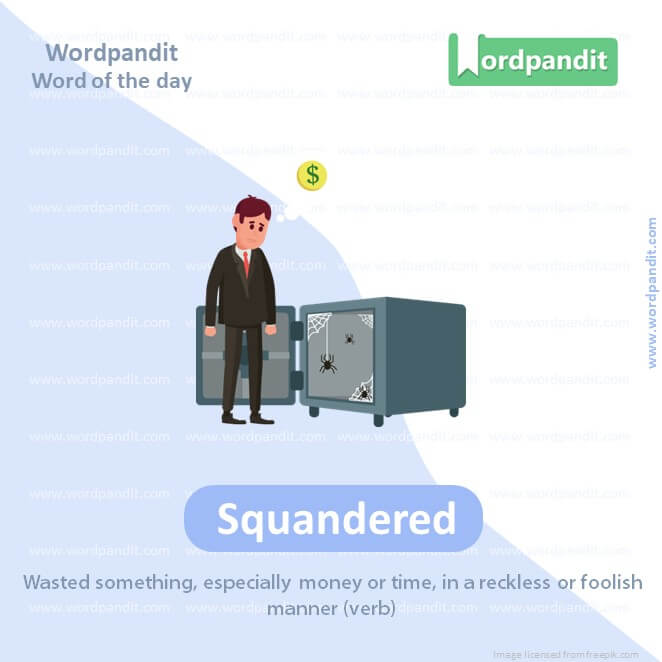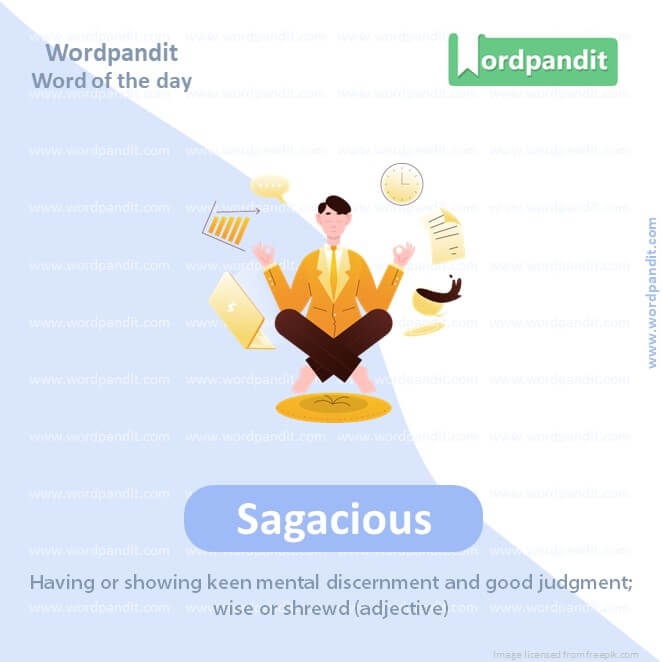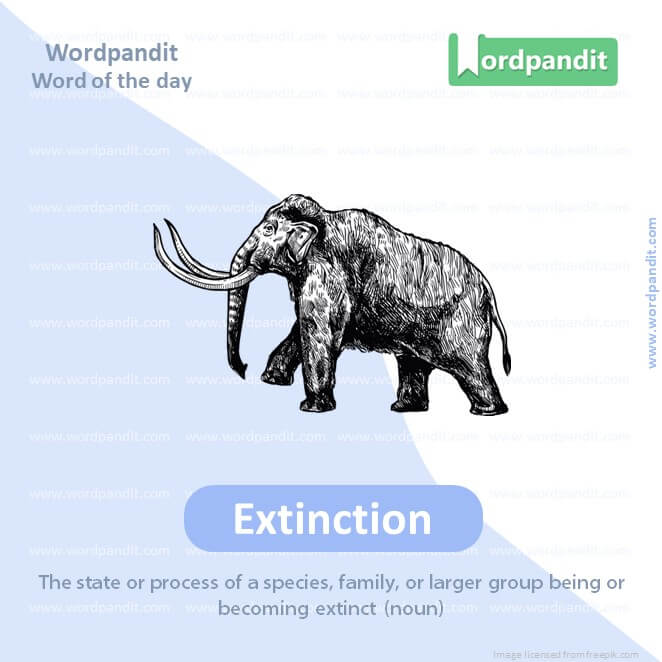Daily Vocabulary Words: List of Daily Used Words in Leading Indian Newspapers
Hi there. Welcome to this special section @ Wordpandit. Our endeavour here is straightforward: highlighting daily vocabulary words that you would come across in leading newspapers in the country. We have included the following newspapers in our selection:
• The Times of India
• The Economic Times
• Hindustan Times
• Mint
• Indian Express
We are putting in extensive work to develop your vocabulary. All you have to do is be regular with this section and check out this post daily. This is your repository of commonly used words; essentially, we are posting a list of daily used words. Hence, this has significant practical application as it teaches you words that are commonly used in leading publications mentioned above.
Visit the website daily to learn words from leading Indian newspapers.

WORD-1: Squandered
CONTEXT: Rahul Gandhi attempted some of that in his Bharat Jodo Yatra but squandered the effort all too quickly.
SOURCE: Hindustan Times
EXPLANATORY PARAGRAPH: Imagine you have a bag of candy and you eat it all very quickly without sharing or saving any. That’s like “squandering.” It means using something valuable in a careless or wasteful way, without thinking about the future.
MEANING: Wasted something, especially money or time, in a reckless or foolish manner (verb).
PRONUNCIATION: skwon-derd
SYNONYMS: Wasted, Misspent, Misused, Dissipated, Blown, Frittered away
USAGE EXAMPLES:
1. He squandered all his money on games.
2. The opportunity was squandered due to negligence.
3. She squandered her inheritance within a year.
4. The team squandered its chance to win the championship.
WORD-2: Egregious
CONTEXT: Before you respond with a volley of examples of Blair’s many stumbles, including the most egregious mistake of launching a war in Iraq, this is obviously not a literalisation of the United Kingdom parallel or the championing of an individual.
SOURCE: Hindustan Times
EXPLANATORY PARAGRAPH: Think about someone making a really big mistake, like painting a cat purple. “Egregious” means something is shockingly bad or wrong, like the purple cat.
MEANING: Outstandingly bad or shocking (adjective).
PRONUNCIATION: ih-gree-jus
SYNONYMS: Shocking, Appalling, Horrific, Atrocious, Heinous, Flagrant
USAGE EXAMPLES:
1. The judge described the crime as egregious.
2. It was an egregious error of judgment.
3. The article contained several egregious mistakes.
4. His behavior towards his friends was egregious.

WORD-3: Sagacious
CONTEXT: There are references that growing up among seven brothers, she became just as adept in warfare and sagacious in statecraft.
SOURCE: Hindustan Times
EXPLANATORY PARAGRAPH: Imagine someone who is really wise and knows a lot, like a wise old owl in a story. That’s what “sagacious” means. It’s used for people or actions that are very smart and show good judgment.
MEANING: Having or showing keen mental discernment and good judgment; wise or shrewd (adjective).
PRONUNCIATION: suh-gay-shus
SYNONYMS: Wise, Clever, Intelligent, Astute, Shrewd, Perceptive
USAGE EXAMPLES:
1. The sagacious leader made thoughtful decisions.
2. It was a sagacious move to invest in that company.
3. His sagacious advice was often sought.
4. She was known for her sagacious judgment.

WORD-4: Chronicled
CONTEXT: These include stories of villagers, who live in close proximity to wild animals, in areas surrounding the reserve and of forest staff, including foot-soldiers, mahouts and forest guards, whose heroism might seldom be chronicled in the narrative of global environmental conservation, but who are in fact, an undeniable part of the reserve’s ecosystem.
SOURCE: Indian Express
EXPLANATORY PARAGRAPH: Think about writing down everything that happens in a story or in history, like a diary. “Chronicled” means recording events in the order that they happened.
MEANING: Recorded events in a factual and detailed way (verb).
PRONUNCIATION: kron-i-kld
SYNONYMS: Recorded, Documented, Registered, Reported, Logged, Noted
USAGE EXAMPLES:
1. The book chronicled the history of the war.
2. Her travels were chronicled in her blog.
3. The rise and fall of the empire were chronicled by historians.
4. The documentary chronicled the life of the famous artist.
WORD-5: Banishment
CONTEXT: Some interpretations of the epic also wonder why she didn’t contest Lord Ram’s ascendancy to the throne on his return and theorise if the banishment was her way of initiating Ram into the ways of the world so that he deserved the throne by merit rather than birth.
SOURCE: Hindustan Times
EXPLANATORY PARAGRAPH: Banishment is like being sent away from a place and not being allowed to come back. It’s like being told you can’t play with your friends anymore and have to stay away from them.
MEANING: The act of sending someone away from a country or place as an official punishment (noun).
PRONUNCIATION: ban-ish-ment
SYNONYMS: Exile, Expulsion, Ostracism, Deportation, Eviction, Exclusion
USAGE EXAMPLES:
1. The king ordered the banishment of the traitor.
2. Banishment was used as a punishment in ancient times.
3. The criminal faced banishment from the country.
4. The story ended with the hero’s banishment.

WORD-6: Stewardship
CONTEXT: this wilderness story narrated by globalised voices that recognise and vocalise their resolve to maintain the delicate ecological balance for survival of all life forms, are other heroic tales of everyday sustenance, survival and stewardship.
SOURCE: Hindustan Times
EXPLANATORY PARAGRAPH: Stewardship is like taking care of something really important, like a garden or a pet. It means being responsible for taking good care of something that doesn’t belong to you.
MEANING: The job of supervising or taking care of something, such as an organization or property (noun).
PRONUNCIATION: styoo-erd-ship
SYNONYMS: Care, Guardianship, Management, Supervision, Custodianship, Administration
USAGE EXAMPLES:
1. He took his stewardship of the land very seriously.
2. The museum’s stewardship of the artifacts was commendable.
3. Her stewardship of the company led to its success.
4. The organization is known for its good stewardship.

WORD-7: Extinction
CONTEXT: Its near extinction in 1973 was a pivotal moment in India’s conservation history. Now, Corbett has the highest density of wild tigers in the world.
SOURCE: Hindustan Times
EXPLANATORY PARAGRAPH: Extinction is when there are no more of a certain kind of animal or plant left in the world, like dinosaurs. They’re gone and can’t come back.
MEANING: The state or process of a species, family, or larger group being or becoming extinct (noun).
PRONUNCIATION: ik-stink-shun
SYNONYMS: Vanishing, Disappearance, Dying out, Eradication, Annihilation, Loss
USAGE EXAMPLES:
1. The extinction of the dodo bird was caused by humans.
2. Scientists are working to prevent the extinction of certain species.
3. The asteroid event led to the mass extinction of dinosaurs.
4. Habitat destruction can lead to extinction.
WORD-8: Treacherous
CONTEXT: the dread and danger lurking in the treacherous gaze of a stalking tiger, an unforgettable sight.
SOURCE: Hindustan Times
EXPLANATORY PARAGRAPH: Treacherous is like when something or someone is very dangerous or tricky. It’s used for roads that are slippery and hard to drive on, or for people who can’t be trusted.
MEANING: Guilty of or involving betrayal or deception; hazardous because of presenting hidden or unpredictable dangers (adjective).
PRONUNCIATION: trech-er-us
SYNONYMS: Dangerous, Perilous, Deceptive, Untrustworthy, Hazardous, Unreliable
USAGE EXAMPLES:
1. The mountain path was treacherous.
2. His treacherous actions betrayed his friends.
3. The sea was treacherous during the storm.
4. He was known for his treacherous behavior.
WORD-9: Righteousness
CONTEXT: The will of the people”, that voluble self-righteousness often has nothing to do with realpolitik.
SOURCE: Hindustan Times
EXPLANATORY PARAGRAPH: Righteousness is like always doing what is right and fair. It’s like a superhero who helps people and follows the rules. It means being good and moral.
MEANING: The quality of being morally right or justifiable (noun).
PRONUNCIATION: rye-chus-ness
SYNONYMS: Virtue, Morality, Goodness, Justice, Uprightness, Integrity
USAGE EXAMPLES:
1. He was admired for his righteousness and fairness.
2. The righteousness of her cause was recognized by many.
3. He spoke with a sense of righteousness.
4. The movement was driven by a sense of righteousness.
WORD-10: Consecration
CONTEXT: Vinayak Damodar Savarkar or how to respond to the consecration of the Ram Mandir in Ayodhya.
SOURCE: Hindustan Times
EXPLANATORY PARAGRAPH: Consecration is like making something very special and important, often in a religious way. It’s like when a place or thing is blessed and set aside for a special purpose.
MEANING: The action of making or declaring something, typically a church, sacred; the dedication to a special purpose (noun).
PRONUNCIATION: kon-suh-krey-shun
SYNONYMS: Dedication, Sanctification, Blessing, Hallowing, Ordination, Anointment
USAGE EXAMPLES:
1. The consecration of the new church will be next Sunday.
2. The priest performed the consecration of the altar.
3. The ceremony involved the consecration of the holy site.
4. His life of service was a form of consecration.
Vocabulary Meaning and Examples
In the fascinating world of language learning, a method particularly impactful is learning ‘vocabulary meaning and examples’. Harnessing this dual approach of understanding words through definitions and relevant examples yields a sound vocabulary grasp. Let’s explore how we can effectively learn vocabulary using ‘meaning and examples’.
Foremost, recognizing ‘meaning and examples’ involves more than just a surface glance at the definition. It requires an engaged interaction with the word, placing it within a proper context. This enriches comprehension and facilitates an innate understanding of the word’s applications.
The process of learning ‘meaning and examples’ is made highly effective through varied resources. Reading literature, online articles, and language learning platforms offer numerous examples enriching the meanings. By frequently encountering a word in various contexts, the understanding of the ‘meaning and examples’ deepens, imprinting the word into long-term memory.
When learning ‘meaning and examples’, creating personal sentences is recommended. Develop your own examples using the given word. This personal connection between learned vocabulary and your everyday life context strengthens both familiarity and recall.
Moreover, taking notes while studying ‘meaning and examples’ goes a long way in mastering vocabulary. Jotting down the definition and a couple of examples for reference leads to better recall during revisions.
Finally, teach to learn. A tried-and-true method to solidify ‘meaning and examples’ is by explaining the word to someone else. This exercise forces you to articulate the word’s usage and understanding clearly, embedding it further in your memory.
In conclusion, the journey to learn ‘vocabulary meaning and examples’ is a rewarding process that involves a multifaceted approach. As you dive into the rich experience of understanding words through ‘meaning and examples’, you uncover the nuance and depth of language, enabling you to master it in its true sense.













